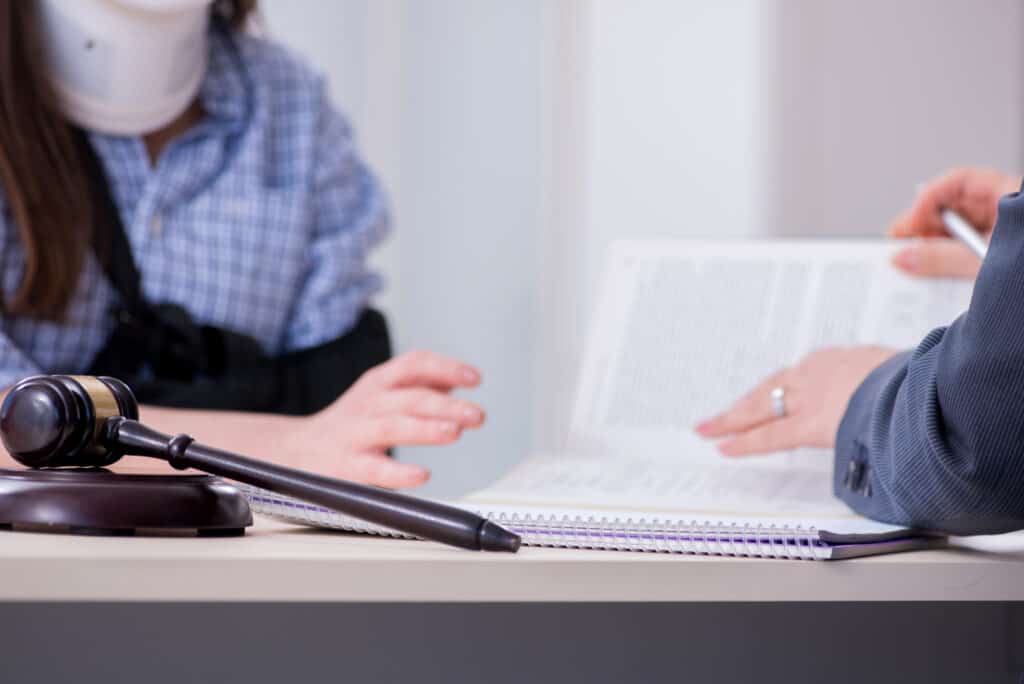What would you do after a car accident? It’s a tough question, especially in the moment, when stress and confusion are high. In a busy city like Charlotte, NC, accidents happen often, and the steps you take afterward can make a huge difference. Many people unintentionally make mistakes that harm their ability to recover costs or protect their rights. Whether it’s failing to gather evidence or leaving the scene too soon, these errors can have lasting effects.
In this blog, we’ll go over common legal mistakes to avoid after a car crash and how to handle each step more confidently.
Leaving the Scene Too Quickly
After an accident, it’s natural to want to get back to normal as soon as possible. However, leaving the scene too quickly can lead to serious consequences. Even if you feel okay or the damage looks minor, always stay at the scene until you’ve documented everything and spoken to the necessary people. Leaving without reporting the accident could lead to penalties, and you might miss the chance to collect important evidence, such as photos or witness information. Wait until the police arrive, if required, and make sure you have all the information you need before you leave the scene.
Not Consulting a Lawyer Early On
Seeking advice from a lawyer soon after the accident helps you understand your rights and next steps. If you’re unsure where to start, it can be helpful to look up auto accident injury Charlotte services to find local attorneys who can assist with handling insurance negotiations, gathering essential evidence, and assessing fair compensation for your losses. A lawyer can identify potential issues early on, helping you avoid costly mistakes. Even a quick consultation can make a significant difference in the outcome of your case.
Failing to Document Key Details
When an accident happens, emotions often run high, and remembering details can be challenging. That’s why documenting the accident is essential, even for seemingly small incidents. Take photos of all involved vehicles, their positions, and any visible damage. Note down the license plate numbers, make and model of all cars, and any injuries you or others may have. Don’t rely on memory alone—small details can be important later.
Admitting Fault or Apologizing
It’s natural to feel sorry after an accident, and some people might instinctively apologize to the other driver or say things that suggest they were at fault. Avoid this. Even a simple “I’m sorry” could be taken as an admission of guilt, affecting any future legal claims or insurance settlements. Stick to the facts when talking to others, including the police. Describe the events as you saw them without assigning blame, even if you think you may have contributed to the accident. Let the insurance adjusters and any investigators handle fault determination.
Not Seeking Immediate Medical Attention
If you don’t feel pain right away, it’s easy to think you’re uninjured. But some injuries, such as whiplash or internal damage, might not show symptoms immediately. By not seeking medical attention right after the accident, you could unintentionally weaken your future claim. Insurance companies might argue that your injuries weren’t caused by the accident. Always get checked by a medical professional as soon as possible, even if you feel fine. This creates a record of any issues related to the accident and ensures you receive any necessary treatment.
Talking Freely with Insurance Adjusters
After an accident, your insurance company or the other driver’s insurer will likely contact you to gather information. While it’s fine to report the basic facts of the accident, avoid giving recorded statements, opinions, or detailed accounts without first consulting a legal professional. Insurance adjusters sometimes look for ways to minimize their company’s payout, and even simple statements might be used against you later. It’s usually best to keep your conversation brief and stick to the facts. If they ask for more than that, consider seeking legal guidance.
Ignoring Long-Term Effects of the Accident
After an accident, many people focus only on immediate issues like car repairs and initial medical bills. But some injuries or financial losses could continue to affect you long after the accident. Failing to consider these long-term effects might lead to accepting a settlement that doesn’t cover future expenses, such as ongoing medical treatment, lost wages, or rehabilitation. Discussing potential long-term impacts with a medical provider and your lawyer can help ensure that any settlement takes future needs into account.
Accepting the First Insurance Settlement Offer
It’s tempting to accept the first settlement offer an insurance company presents, especially if you’re dealing with medical bills and car repairs. However, insurance companies often start with a low offer to save on costs. Accepting it might mean losing out on the compensation you truly deserve. Review any offer carefully, and consult a lawyer if possible, before agreeing to it. A lawyer can help determine if the amount offered is fair or if negotiating for a better settlement is in your best interest.
Failing to Track Your Expenses
After a car crash, you may face various expenses, from vehicle repairs and medical bills to costs related to missed work. Failing to keep detailed records of these costs could hurt your case. Documenting all expenses related to the accident, including small costs like prescriptions, transportation, or over-the-counter pain relief, can support your claim for compensation. Keeping receipts and a log of costs helps to show the full financial impact of the accident, making it easier to negotiate a fair settlement.
Rushing Through the Process
Dealing with a car accident can feel overwhelming, and it’s natural to want to put the whole experience behind you. However, rushing through the legal process can lead to mistakes that may be hard to fix later. Take your time to fully understand each step, from filing a police report to working with your insurance company and possibly consulting a lawyer. Moving too quickly can result in accepting an unfair settlement or missing key details that might affect your case. Patience and a careful approach can help protect your rights and give you the best possible outcome.
In the end, handling the aftermath of a car accident isn’t just about managing logistics. It’s about safeguarding your future. Each choice you make—from the first moments at the accident scene to any settlement decisions—can impact your recovery, financial stability, and peace of mind. Mistakes are easy to make in such a stressful time, but being aware of them means you can take smarter steps forward.
Take a moment to think about your priorities: protecting your health, your rights, and your future. When you keep these in focus, you’re setting yourself up for a better path to recovery—one where you feel in control and prepared for what lies ahead.



